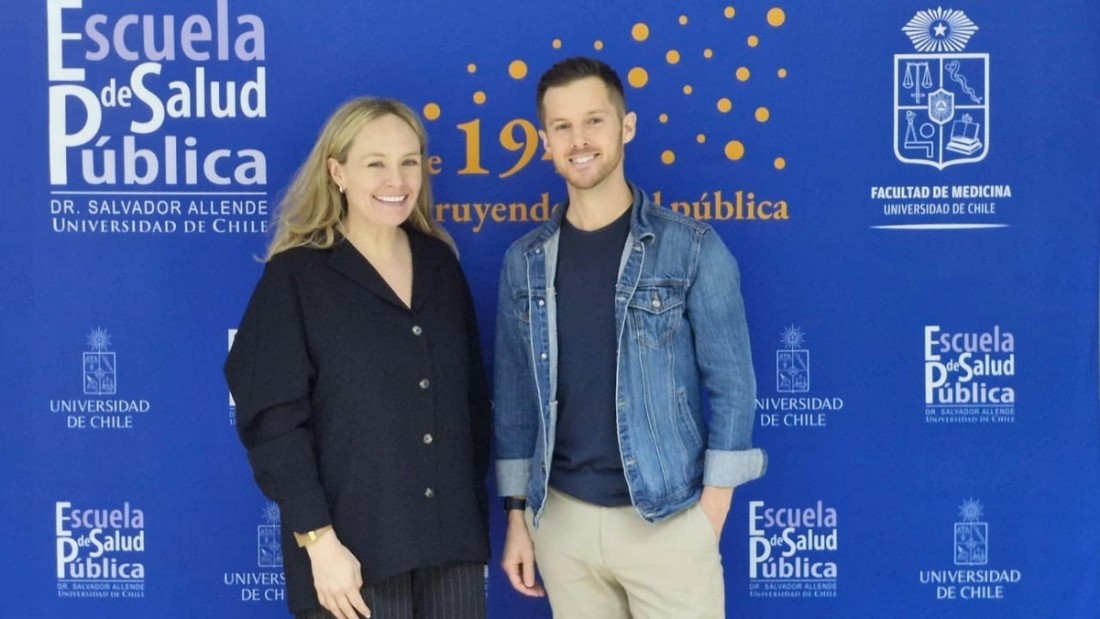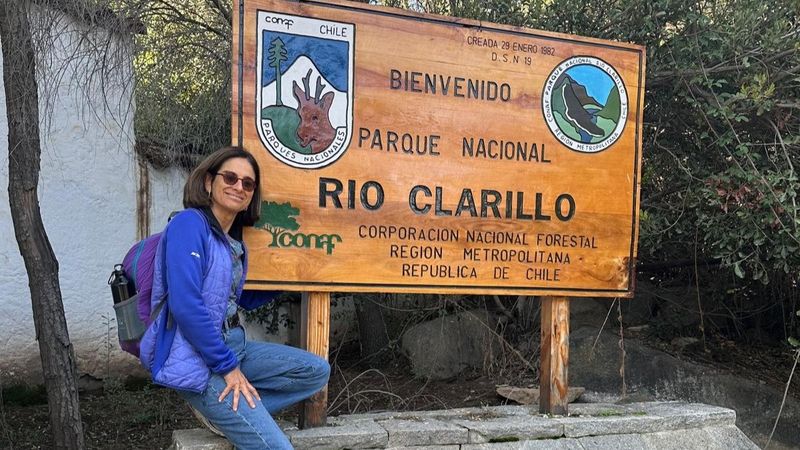Scholars-in-Residence Investigate Health and Conservation in Chile

How are Columbia Global's first Scholars-in-Residence taking advantage of their unique residencies in Chile? Building networks and taking their research to the field.
Four scholars recently traveled to Chile as part of Columbia Global's inaugural Scholars-in-Residence program, where Columbia faculty members and researchers were selected for immersive residencies at Global Centers located around the world.
Daniel Giovenco, assistant professor in the Department of Sociomedical Sciences at Columbia’s Mailman School of Public Health, is investigating how national tobacco control strategies shape health disparities in Chile and the U.S. He was joined in Chile by Torra Spillane, Mailman research manager, who also specializes in tobacco control, substance use, cannabis, and public health.
His residency included field observations of nicotine and cannabis retail and use, as well as a series of in-depth meetings and discussions with Chilean faculty and students.
“During my two-week residency in Chile, organized by Columbia Global Centers Santiago, I engaged with leading public health researchers, physicians, and educators across six major academic institutions to exchange insights on tobacco control and substance use policy between countries... This immersive experience offered valuable perspectives on the distinct yet overlapping social, political, and cultural contexts shaping substance use in Chile and the U.S.”
- Daniel Giovenco
María Victoria (“Vicky”) Murillo, Professor of Political Science and International Affairs and outgoing Director of the Institute of Latin American Studies at Columbia University, spent her Santiago residency researching the political and institutional factors shaping conservation outcomes in Latin America, using Chile as a key case study.

During her stay, she conducted more than 30 interviews with government officials, NGO leaders, legal experts, indigenous leaders, scholars, park rangers, and administrators of private and public areas. She was also able to visit two protected areas: Parque Nacional Rio Clarillo and the Humedal del Rio Maipo.
Murillo also researched the experiences of inclusion of indigenous groups in the management and administration of protected areas.
Apart from her research on land conservation, she met with a number of renowned political scientists and students, exchanged ideas with colleagues and scholars and started planning future collaborations.